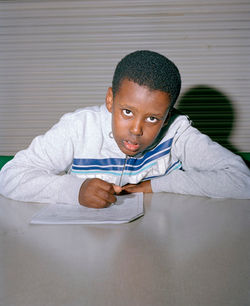 |  |  |  |  |
|---|---|---|---|---|
 |  |  |  |  |
 |  |  |  |  |
P P
Children are at the centre of any community: for millennia humanity has understood their vital centrality as incarnations of hope. They embody potential above all else. Psychoanalysts, such as Melanie Klein and Donald Winnicott, have dedicated much of their lives to understanding how children interact with the world through play in different developmental stages on the journey to adulthood. According to Winnicott, play is paramount to how children interact in their microcosms, serving as an intermediary to comprehending the complexities of the broader world. The space where the kids engage in extra-curricular activities for the Homework Club in this instance, Winnicott would define as 'potential space': a safe and inviting interpersonal field where the children can be extemporaneously playful whilst simultaneously forming genuine connections with their peers. This process is facilitated by the use of ‘transitional objects’, which according to Winnicott have the quality of being both real and fictional, allowing the child’s imagination to be bridged with reality.
lay (2018)
ress
An observation which sits between fact and fiction, the Riverside Community centre’s Homework Club is a contemporary documentary assemblage between impromptu performative play, the banality of homework and instances of pensiveness sporadically occurring in between. Melanie Klein’s interpretation of identifiable broody experience is known as the ‘depressive position’: a stage when a child realizes the difficulties of moral ambiguity and its perplexing relation to the self. According to Klein, it can be identified as a melancholic faraway look in the eyes of a child during daydreams. As they are thinking about how to solve their problems, such as a mathematical one for the purpose of mere exercise; it simultaneously provides a framework for understanding themselves in the broader world on the adventurous journey to adulthood.
